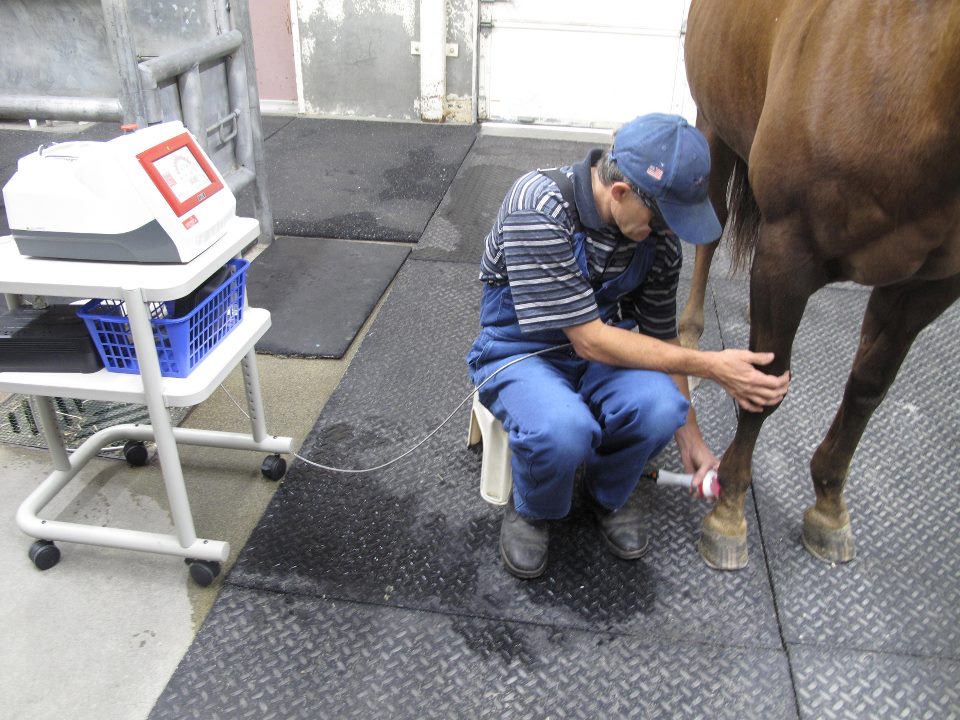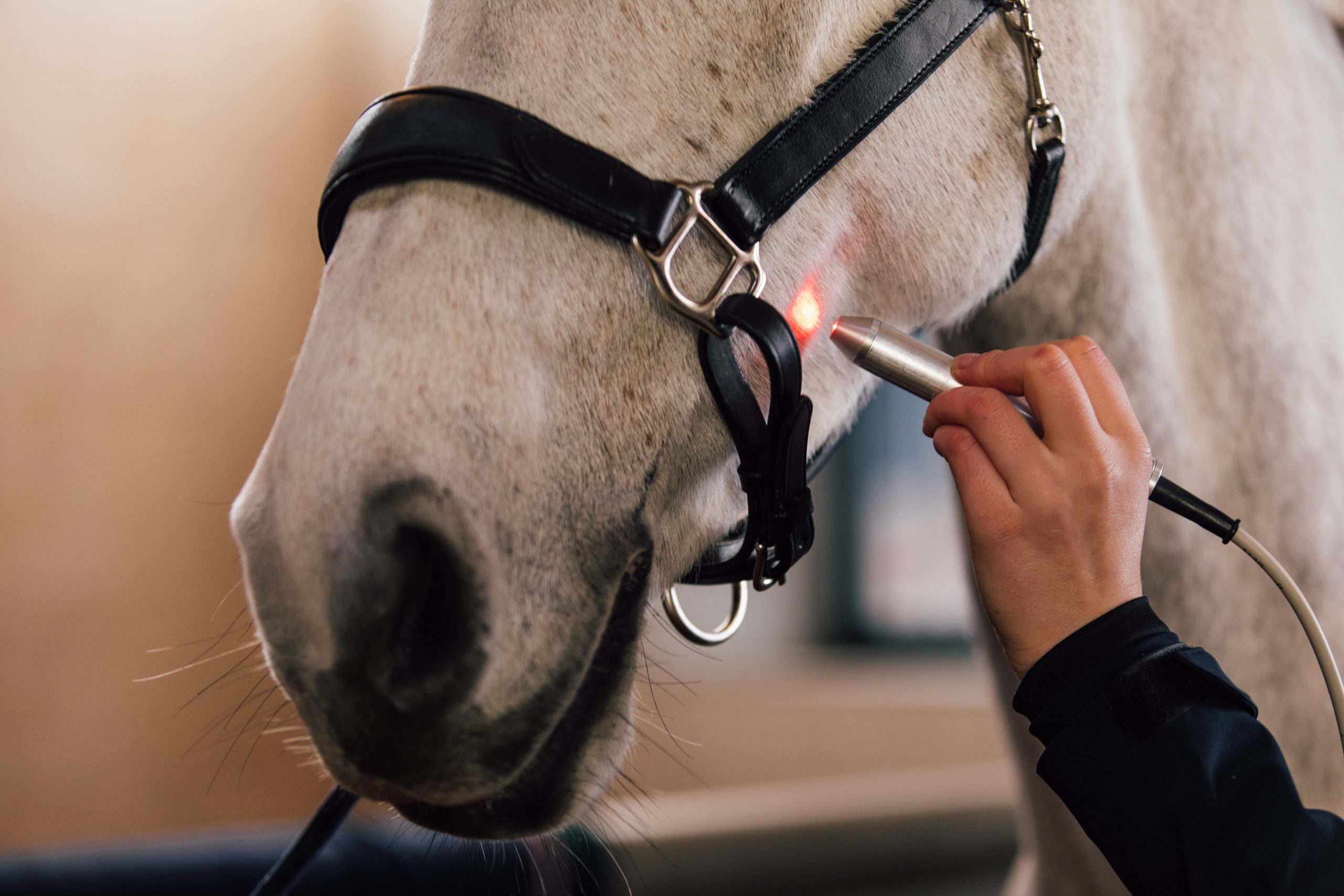Laser Treatment in Horse Treatment: A Modern Strategy to Improving Equine Health
Laser treatment has actually emerged as a critical method in equine therapy, making use of concentrated light energy to promote mobile fixing and expedite recovery from a range of conditions. By boosting mitochondrial task and boosting ATP production, laser therapy not only enhances flow however likewise gives significant discomfort alleviation.
Recognizing Laser Therapy
Laser treatment, a non-invasive treatment method, has actually acquired significant grip in equine medication due to its effectiveness in promoting recovery and pain relief. Boosted ATP degrees speed up tissue fixing procedures and reduce swelling, making laser therapy particularly reliable for treating musculoskeletal injuries, injuries, and other inflammatory problems in equines.
There are several kinds of lasers utilized in equine therapy, each with details wavelengths and power outcomes tailored to various restorative requirements. Low-level laser therapy (LLLT), also referred to as chilly laser therapy, employs reduced power levels to boost cell function without creating thermal damages. High-intensity laser therapy (HILT), on the other hand, uses higher power degrees to accomplish deeper cells penetration and even more considerable healing impacts.
Veterinarians utilize numerous laser devices and techniques depending upon the problem being dealt with and the desired deepness of cells penetration. Appropriate training and expertise are vital for guaranteeing the secure and effective application of laser therapy, therefore maximizing its restorative capacity while decreasing risks.
Benefits for Horse Wellness
With a solid understanding of how laser therapy functions, it is vital to discover its many advantages for equine health. By boosting mobile function, laser therapy advertises faster injury healing and aids in the regrowth of damaged tissues.
Moreover, laser treatment has been shown to boost flow, thus improving blood circulation to impacted areas. Boosted flow guarantees that essential nutrients and oxygen are supplied a lot more effectively, facilitating the recovery process. In addition, laser therapy's anti-inflammatory effects assist in decreasing swelling and pain, which is vital for the overall health of the horse.
Discomfort administration is an additional considerable advantage. By launching endorphins and blocking discomfort signals, laser therapy supplies effective, non-invasive alleviation from both acute and persistent pain. This can contribute to boosted movement and top quality of life for the pet.
Last but not least, laser therapy is a non-invasive therapy option, lessening the risk of issues connected with even more intrusive procedures. Its convenience and efficacy make it a very useful tool in contemporary horse veterinary medication.
Common Conditions Dealt With

One more common condition treated with laser therapy is arthritis. Equines experiencing from both severe and chronic arthritis take advantage of the anti-inflammatory effects of laser treatment, which helps to reduce pain and improve joint function. In addition, laser treatment is employed in the management of injuries. Whether managing medical lacerations or distressing injuries, the technique promotes faster tissue repair and lowers the threat of infection.
Horse breathing conditions, such as frequent airway blockage (RAO), also react favorably to laser treatment. Laser treatment is useful in treating hoof troubles, including laminitis and abscesses.
Treatment and Safety
Carrying out laser therapy in equine treatment entails a precise treatment to ensure read what he said both effectiveness and safety and security. Equine Therapy. The process begins with a thorough veterinary analysis to determine the suitability of laser treatment for the horse's particular problem. Once considered appropriate, the treatment location is prepared by cleansing and, if required, clipping the hair to improve laser infiltration
The practitioner should pick the correct sort of laser, usually a low-level laser (LLLT) or a high-power laser (HPL), depending on the condition being treated. The laser tool is after that adjusted to the appropriate wavelength, power, and duration settings. Throughout the application, the professional relocates the laser over the targeted location in a systematic manner, making sure constant and even direct exposure.
Safety protocols are purely complied with, including making use of safety eyeglasses for both the expert and the horse. In addition, it is crucial to monitor the horse for any signs of discomfort or unfavorable reactions throughout the procedure. Post-treatment, the horse is frequently given a period of rest to allow the healing results to show up.

Future of Equine Laser Treatment
As advancements in vet medicine continue to unravel, the future of equine laser therapy holds substantial guarantee. Arising technologies and much deeper scientific insights are established to fine-tune and increase the applications of laser therapy for equines.
In addition, continuous study into this article the molecular and cellular devices of laser therapy will likely produce maximized protocols customized to specific conditions, boosting effectiveness and minimizing therapy times. Personalized treatment strategies based upon genetic and biochemical markers might come true, making sure that each steed receives the most proper and effective care.
Moreover, governing advancements and standardization of protocols will improve the credibility and dependability of laser therapy in equine method. Equine Therapy. As these technologies remain to check my site emerge, equine laser therapy is poised to end up being a vital component of vet treatment, offering improved recovery and boosted top quality of life for steeds globally
Conclusion

Comments on “Discover the Impressive Benefits of Equine Therapy for Emotional Recovery”